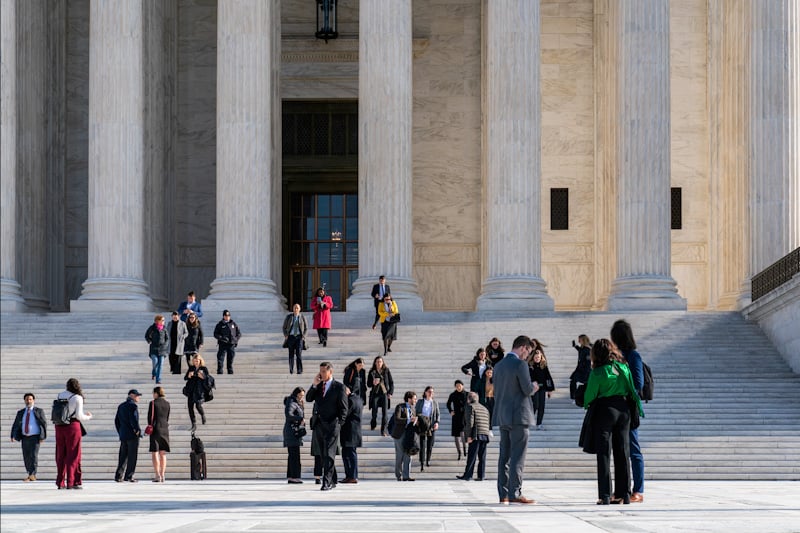Supreme Court sides with deaf student in quest for damages for inadequate education

People leave the U.S. Supreme Court after oral arguments in Luna Perez v. Sturgis Public Schools on Jan. 18. Photo by J. Scott Applewhite/The Associated Press.
The U.S. Supreme Court on Tuesday ruled that a deaf student can pursue damages for an inadequate education under the Americans With Disabilities Act, even though he didn’t exhaust remedies under a federal education law.
The March 21 decision in favor of Miguel Luna Perez was unanimous. Justice Neil Gorsuch wrote the opinion.
Perez was a student at the Sturgis Public School District in Michigan from age 9 through age 20. Because he advanced from grade to grade, his parents thought that he was receiving an adequate education with the help of an aide using sign language translation. But the school district informed Perez’s parents just months before high school graduation that he would not receive a diploma.
Perez and his parents allege that he was assigned aides who didn’t know sign language or who were often absent from the classroom. Perez’s parents filed a complaint with the Michigan Department of Education alleging that Perez did not receive a free and appropriate education as required by the Individuals With Disabilities Education Act.
The case settled without going through the entire administrative process when the school system agreed to pay for additional instruction at the Michigan School for the Deaf.
The IDEA law doesn’t provide for damages, so Perez and his parents sued for damages under the ADA, the federal disability law.
The school district contended that Perez and his parents couldn’t sue because the IDEA requires exhaustion of administrative remedies in lawsuits that flow from the same harm. Perez and his parents, however, claimed that the exhaustion requirement barred new suits only when the plaintiffs seek the same remedies provided in the IDEA.
Gorsuch said Perez’s argument “better comports with the statute’s terms.”
The decision, Gorsuch said, “holds consequences not just for Mr. Perez but for a great many children with disabilities and their parents.”
The case is Luna Perez v. Sturgis Public Schools.
Publications covering the ruling include SCOTUSblog, the Washington Post, the Associated Press and Reuters.
Write a letter to the editor, share a story tip or update, or report an error.



